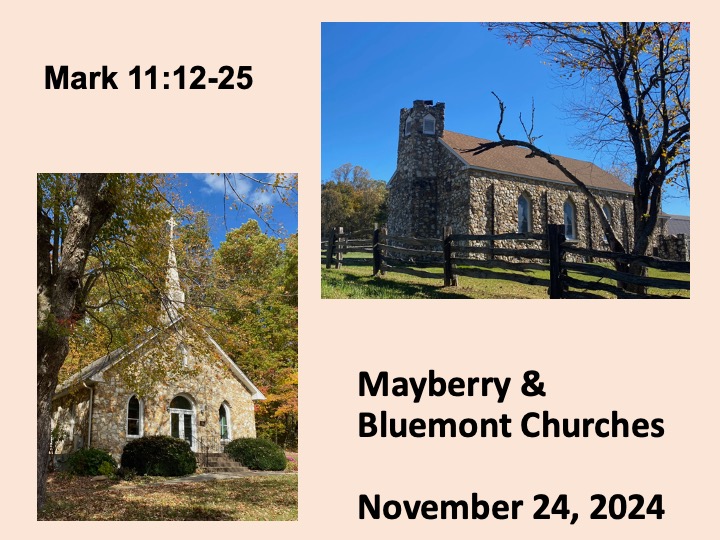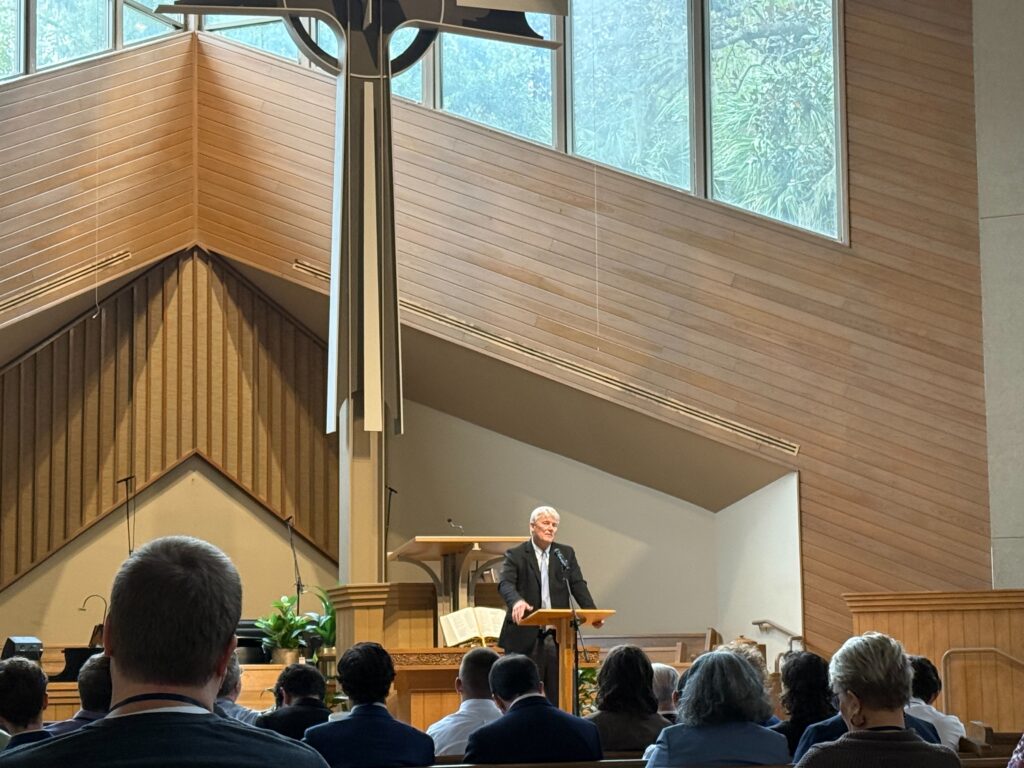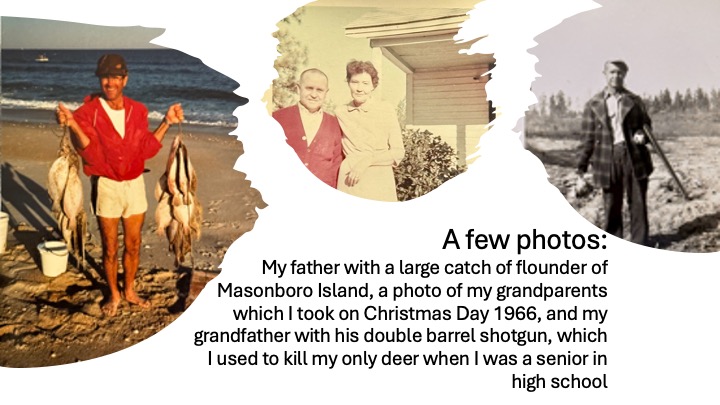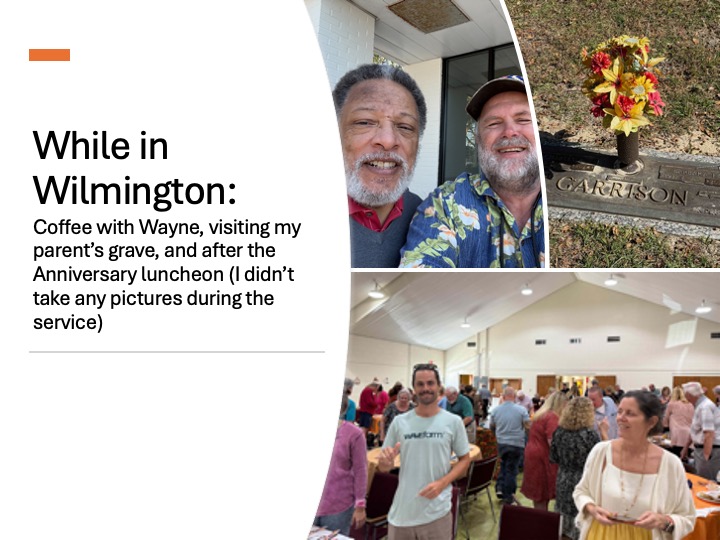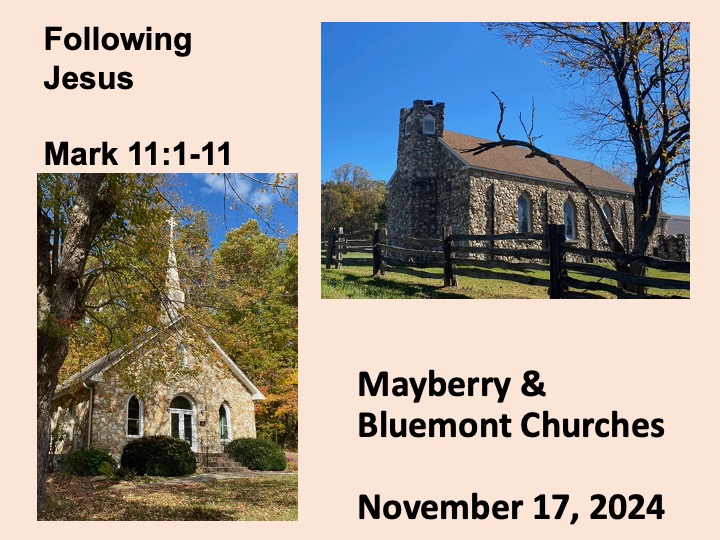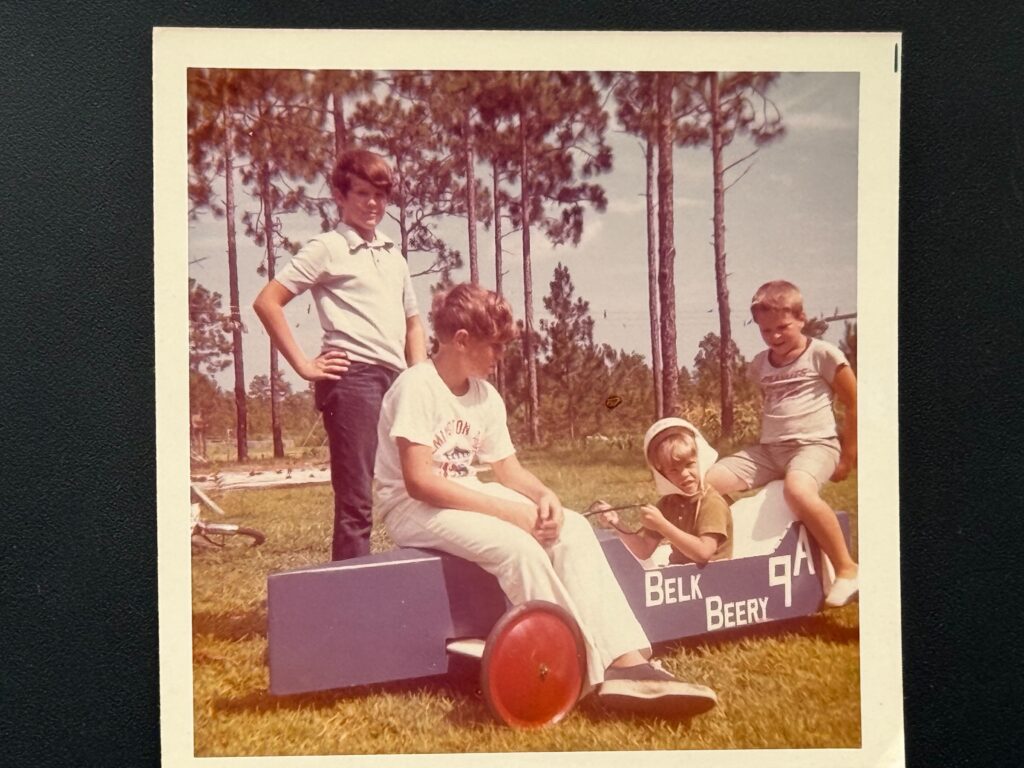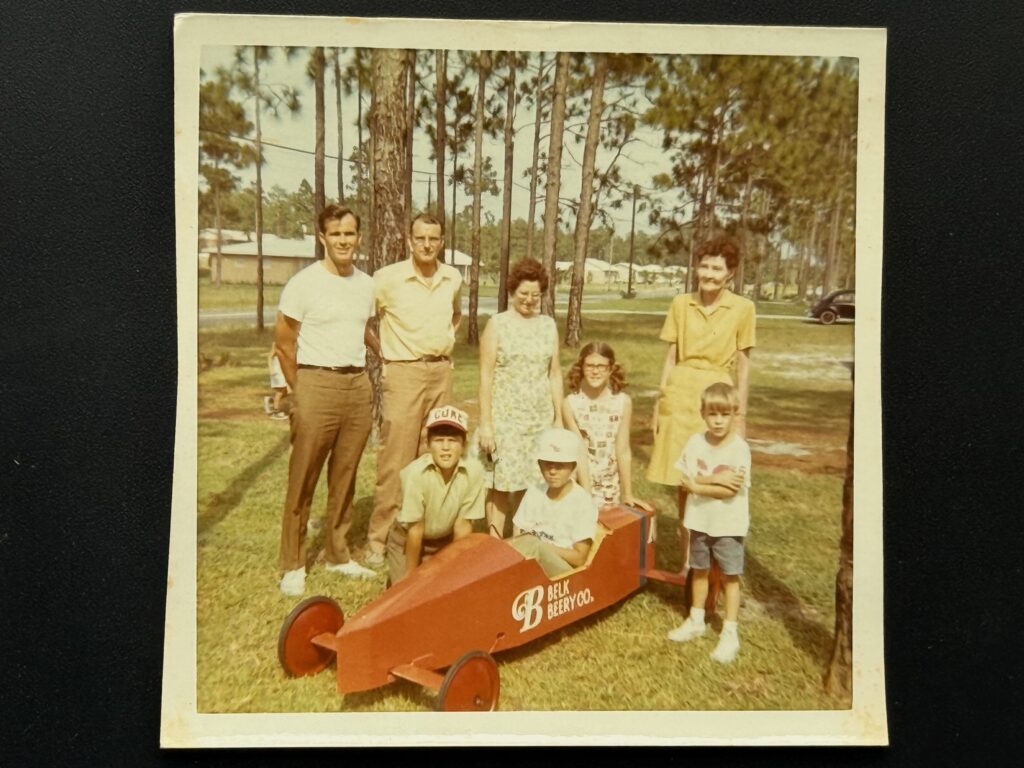Jeff Garrison
Bluemont and Mayberry Churches
November 24, 2024
Mark 11:12-25
Comments at the beginning of worship:
“Be as strict as possible with yourself but as generous as possible with others,” an Orthodox priest taught.[1] Good advice and Jesus shows us an example of this in today’s text. Jesus could be harsh and strict with the faithful (or so called faithful as they were mostly hypocrites), while encouraging his often-clueless followers to forgive and be generous. We should learn from his example.
Before the Scripture reading:
As we continue to work our way through Mark, we find ourselves on the day after Jesus’ entry into Jerusalem. If you remember from last week, Jesus came into the city late in the day, looked around a bit, then headed to Bethany for the evening. Our reading today begins with them going back to the Jerusalem on the next day.
Mark tells this story slightly different that Matthew and Luke. The other two synoptic gospels have Jesus cleansing the temple immediately after entering Jerusalem.[2] Instead, in Mark, Jesus has a night to sleep on things before he acts. Also, in Mark, on the way to the temple, Jesus has an encounter with a fig tree.
In this text we see one of Mark’s familiar types of construction: the sandwich, which were popular earlier in the gospel.[3] Mark starts with one topic, then moves to another, before going back to complete the discussion of the first topic. In our passage today, the fig tree serves as the bread for the sandwich with the cleansing of the temple in the middle.
Unlike some of the other sandwich constructions in Mark, this one comes with a pickle on the side, a proverb which focuses on prayer and forgiveness. That proverbial ending, we’ll see, shifts the meaning, from judgment to the power of God and our role as disciples.[4]
The fig tree story, an enacted parable, is also miraculous. In fact, it’s the only negative miracle in the gospels. Other miracles bring about healing and life, positive things. But here we end up with a dead tree.[5] Some criticized Jesus for being vindicative, but I’m not sure that’s the point.[6] Let’s look at the text.
Read Mark 11:12-25
It may be hard for us to comprehend the size of the temple. This was no little church in the wildwoods surrounded by a graveyard and with an adjacent picnic pavilion. The third temple, which Herod the Great had begun constructing in 20 BC, was massive. The temple consisted of four sections. Three of the sections excluded all but the faithful. The Court of the Women was for Jewish women and the Court of Israel was for circumcised Jewish men. And the innermost section of the temple, “the holy of holies,” was reserved for the high priest to make atonement for the people’s sins.
But around the temple was the massive Court of the Gentiles. It was 500 yards long and 325 yards deep, roughly 35 acres. Here, anyone could come, including gentiles. This area was also where the faithful Jews, who had traveled long distances and wanted to make a sacrifice, could purchase a spotless animal to be offered to God. Sacrifice was a big business. According to Josephus, an ancient Jewish author, in 66 AD, the year the temple was completed, a quarter million lambs were sacrificed during Passover! In a way, the Court of the Gentiles was a stockyard.
In addition to unblemished animals for sacrifice, proper coinage had to be used in the temple. Coins could have no graven images on them and were to be pure metal. Roman coins with Ceasar’s head had to be exchanged for more appropriate coins to use inside the temple. Moneychangers lined up to do a brisk business, making a profit as they collected the more valuable Roman coins and issued those approved for temple use.[7]
Now, because of the sheer size of the temple and Mark’s wording, it seems unlikely Jesus cleared the entire 35 acres of moneychangers and livestock brokers. Mark says that “Jesus began to drive out those selling and buying,” not that he drove them all out. Furthermore, Mark only mentions those who sold doves, just one of the animals offered as a sacrifice within the temple, and one generally used by the poorest of pilgrims.
If Jesus had cleared this entire 35-acre court, he would have likely drawn attention to the Roman garrison stationed just to the north of the temple at Antonia Fortress. These soldiers would have intervened to keep the peace.[8]
While Jesus didn’t appear to draw Roman attention at this point, he did catch the attention of the chief priests and scribes. They sense danger at his display of anger. After all, they made a profit from this activity. They could have wondered if Jesus was the Messiah, as he was cleansing the temple. But Jesus isn’t driving away the gentiles (although he drove out some who were sellers as well as some Jewish buyers). But what he expresses is for the temple to be a safe place for all people to come and pray. Instead of excluding the gentiles, Jesus expresses a desire to open the temple to them.[9]
The story of Jesus cleansing the temple is merged between the two halves of the story of the fig tree. On their way to the temple, we’re told Jesus was hungry and he hoped there will be some fruit left of a fig tree. Our text makes us wonder why Jesus would have even looked since it was not the season for figs. And why is the tree punished?
The fig harvest was normally from mid-August to mid-October. However, after the harvest trees often sprouted buds, calledpaggim in Hebrew, which remained undeveloped throughout the winter. These were eatable and probably was what Jesus looked to find and eat as a snack. The death of the tree reminds us of God’s judgment coming to the temple and to Israel. Five of the prophets speak of fig trees in relationship to judgment.[10] Jesus himself speaks of the destruction of unproductive fruit trees, torn down and burned, as a sign of judgment.[11]
After the encounter in the Court of the Gentiles, Jesus and the disciples again leave the city for Bethany, where the spend the night. Then, on the second day, as they return to the city, Peter sees the cursed tree and points it out to Jesus. Jesus uses this as a lesson for the disciples about faith, prayer and the need to forgive others. The tree isn’t just about judgment, but also encourages them to have faith in God.
The idea of having enough faith to move a mountain into the sea may have come from Herod having built a fortress south of Jerusalem, but within eyesight. He had removed a hill and used it as earth to circle his fortress on the mountain with a large wall.[12]Herod could remove a hill, but the disciples could do even greater things, Jesus suggests.
Jesus realizes the temple’s days are numbered. Judgment is coming. But he wants his disciples to place their faith, not in a structure like a temple or a church building but in God. And as we know, Jesus reveals God to us. We’re to have faith in Jesus. We’re to follow him regardless of what danger exists. Faith is our source of strength.
Then Jesus adds what I’ve referred to as a pickle as a side to his sandwich. Perhaps he was afraid of the disciples only wanting to obtain things through prayer and missing an important part of following Jesus. While Mark’s gospel doesn’t include the Lord’s Prayer, that’s found in Matthew and Luke,[13] he does remind us of the importance of forgiving others. As Jesus does in the Lord’s prayer, here he reminds the disciples of the link between our willingness to forgive and God forgiving us.
What does this passage mean for us? Certainly, we need to protect the worship of God so that it focuses on the Almighty and is not used to human benefit. But with that understanding, we should understand that Mark focuses less on Jesus’ anger in the temple than the other gospels.[14] By the end of the passage, Jesus encourages the disciples to have faith. Our faith in Jesus goes hand in hand with our willingness to forgive as he has forgiven us. Amen.
[1] This quote was from Ioann Krest’iankin, a Russian Orthodox Priest and the quote found in John P. Burgess, Holy Rus’: The Rebirth of Orthodoxy in the New Russia (New Haven, CT: Yale University Press, 2017), 191.
[2] Matthew 21:12f and Luke 19:45f. The synoptic gospels place Jesus’ adult visit to Jerusalem during this last week, John’s gospel has Jesus in and out of Jerusalem several times. His cleansing of the temple story comes earlier in Jesus’ ministry. See John 2:13-22.
[3] For examples, see Mark 3:20-34 or https://fromarockyhillside.com/2024/04/07/the-unpardonable-sin-baseball-doing-the-will-of-god/; Mark 4:1-20 or https://fromarockyhillside.com/2024/04/28/the-parable-of-the-sower/; Mark 5:21-42 or https://fromarockyhillside.com/2024/06/09/7247/ ; Mark 6:1-44 or https://fromarockyhillside.com/2024/06/30/a-grand-picnic-and-a-call-to-feed-the-hungry/ and https://fromarockyhillside.com/2024/06/30/a-grand-picnic-and-a-call-to-feed-the-hungry/.
[4] Douglas R. A. Hare, Westminster Bible Commentary: Mark (Louisville, KY: WJKP, 1997), 144-145.
[5] Morna D. Hooker, The Gospel According to Saint Mark (1991, Hendrickson Publishers, 1997), 261.
[6] Bernard Russell was one to criticize Jesus for being vindictive here. See James R. Edwards, The Gospel According to Mark (Grand Rapids, MI: Eerdmans, 2002), 339.
[7] For the size and layout of the temple and information about animals and coins, see Edwards, 340-342.
[8] Hare, 143.
[9] Edwards, 343. For the expectation the Messiah would open the temple of gentiles, see the Psalms of Solomon, 17:22-30.
[10] Edwards, 339-340. See Isaiah 34:4, Jeremiah 29:17, Hosea 2:12, 9:10, Joel 1:7, and Micah 7:1.
[11] See Matthew 7:19 and Luke 13:6-9. John the Baptist also speaks of Jesus bringing such judgment. See Matthew 3:10f.
[12] Edwards, 347.
[13] Matthew 6:9-15 and Luke 11:2-4.
[14] John depicts Jesus’ anger more than the other gospels, as Jesus makes a whip of cords and drives out not only those doing business but also the cattle and sheep. See John 2:15.

